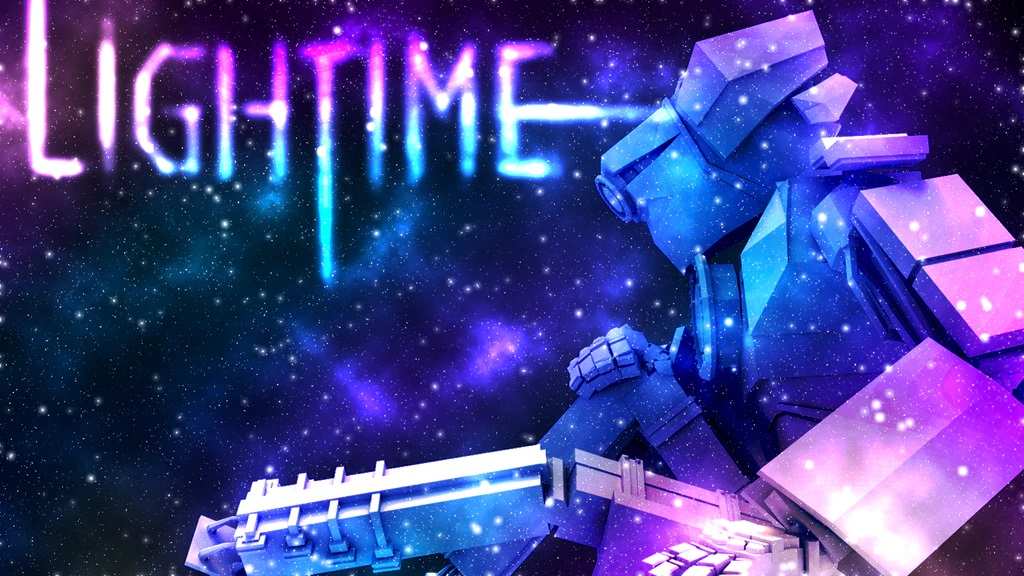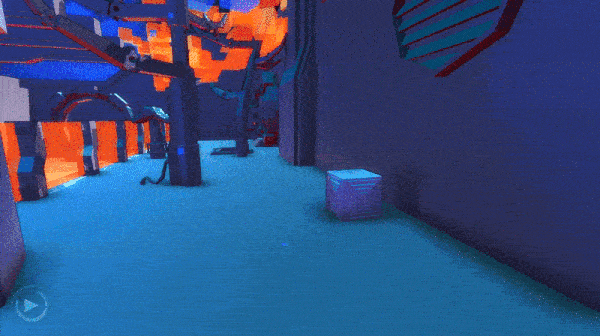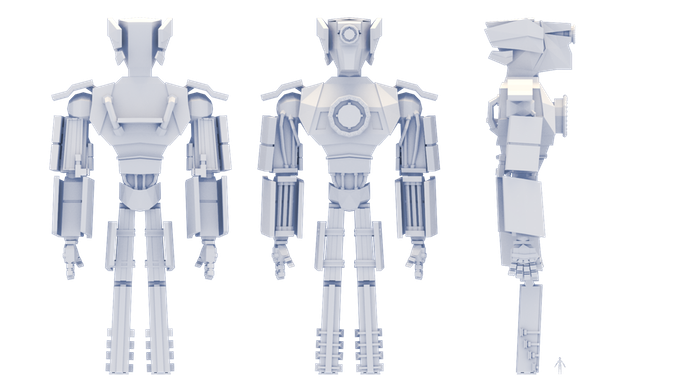Dustin Hyden was an ad man. An ad man not in the age of Don Drapers and other tobacco moguls, with their slick-backed hairstyles and tailor-made suits, but an ad man in the digital age. Only but a year ago, he was just another business grad, sitting behind a desk making those “ads that ‘we all hate before a Youtube video’.” It had its usual share of decent pay and good benefits, but he couldn’t help but feel like a “stain on society” with “utter disdain” for his job.
For the last couple of years, Dustin muddled around in game development – “1-2 hours a week”—but he couldn’t really put too much together without some serious time and effort. And so after his 10 hour work days, he began watching videos on online tutorial site Lynda, spending more than 40 hours learning about game development and modeling. Putting his knowledge into practice, he subsequently modeled a virtual Sonic the hedgehog, and he discovered that he was actually “pretty damn good” at it.
This life wasn’t for me
Then Dustin did exactly what he had been meaning to do for a long time, and quit his job; telling his boss he was sorry but that “this life wasn’t for me.” A tad melodramatic perhaps, but it’s no easy decision to leave a lucrative salary and benefits on the table in order to chase the dream.
It takes courage and passion, but also talent for a creative soul to wriggle free of the clutches of the corporate black hole; and eager to show off his newfound skills, Dustin signed up for Ludum Dare 35. At this game jam – where game developers are given a 48 hour time period to create a video game that revolves around a predetermined theme—you can choose either to attend in person or compete online. Dustin chose to compete from the safety and comfort of his own home, streaming the entirety of his development process, which meant being behind a webcam for 48 hours, with only 10-11 hours of sleep throughout the whole jam.
Dustin told me that although he never met any of the other jam competitors in person, he found it to be a very supportive community, and an experience that got the “gears in [his] brain going on overdrive.” By the end of the jam, he placed 117th out of roughly 3700 developers, and he hopes to “break the top 50,” if not “the top 100” the next time around.
Ludum Dare was the catalyst that Dustin so sorely needed.
Ludum Dare was the catalyst that Dustin so sorely needed to create a working prototype of a game, having scrapped numerous concepts before he tried his hand at Ludum Dare. By the end of the jam, he had also established that time manipulation was to feature prominently in his upcoming game, which he decided to title Lightime.
With all the skills necessary to move forward in his journey as an solo indie game developer—coding, modelling and animating amongst them—Dustin launched Lightime, a first person, low poly puzzle platformer, on Kickstarter. Aiming for $25,000 CAD (he’s from Barrie, Ontario), the game is roughly a week and a half into the campaign but hasn’t really been off to a strong start.
The game’s design is gorgeous, especially with the vibrant white, blue and orange color scheme. From the gameplay featured in the trailer to the screenshots displayed on the Kickstarter page, you get a powerful feel for the bold new mechanical universe, which is plagued with “secrets, dangers and puzzles.” The rewind system is particularly intriguing; although it’s been employed in AAA titles before (Life is Strange comes to mind), it hasn’t been featured all that often in open-world exploration games.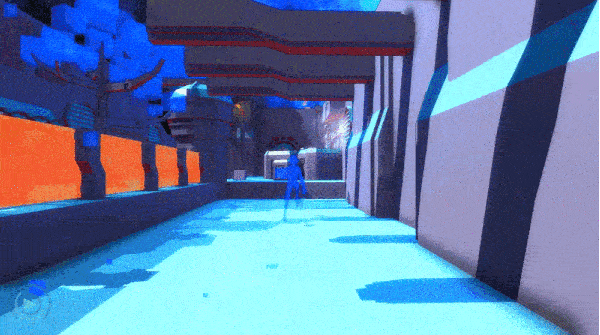
There are a lot of reasons why Dustin Hyden believes his product stands out, and why he believes it deserves to be funded amongst the constant splurge of campaigns on the market today. For starters, he tells me it’s a unique game because it’s a throwback to the N64 era mixed with a modern twist. He says that his problem with games of today—specifically AAA games—is that they’re too predictable. A years ago, when Mario was first released, Dustin believed mainstream titles were full of exploration and wonder. You’d turn left, left and left again, and find the most “random and unique things.” There was an “allure of adventure” as you always set out “[expecting] the unexpected.”
But now? Now, Dustin says, big budget titles all have the same flaws. They set you on “the same tracks,” which, he adds, wouldn’t be so bad if they were all “meant to be like that”; unfortunately, they’re not. I’m going to take off my objective reporter cap for a second here (not that I haven’t already) and interject, disagreeing with all due respect; I’ve played a fair number of AAA games in the last couple of weeks that took me for one heck of an emotional and psychological rollercoaster, with story twists and turns all in check. Deus Ex: Human Revolution and Life is Strange are only two that come to mind—but I digress. To each his own.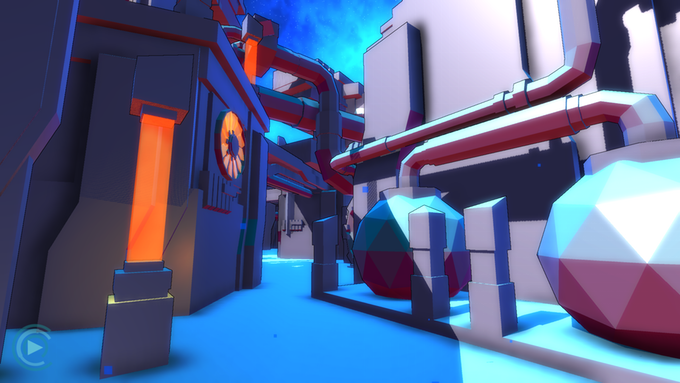 Dustin claims that the many levels he’s building in Lightime will draw comparisons—they’ll be similar, in his words—to the intersection of the legendary Portal games and the Mario series. Players will have the opportunity to explore the vast universe he’s created, “choose which levels to face,” and be given “multiple ways to solve problems.” He’s building an experience where when it’s all said and done, the player, having finished Lightime, will “[sit] back and say, ‘I really enjoyed that.”
Dustin claims that the many levels he’s building in Lightime will draw comparisons—they’ll be similar, in his words—to the intersection of the legendary Portal games and the Mario series. Players will have the opportunity to explore the vast universe he’s created, “choose which levels to face,” and be given “multiple ways to solve problems.” He’s building an experience where when it’s all said and done, the player, having finished Lightime, will “[sit] back and say, ‘I really enjoyed that.”
Dustin, an avid Twitch streamer, has been sharing his development process live with the community surrounding him since day one. His audience has given him voluminous feedback on Lightime, influencing aspects such as the “color of the game, the look of the main character, the mechanics, and more.” Sometimes they ask him questions, keeping his “brain active” and his mind “focused”; other times he’s the one asking the questions, itching for feedback. He’s not afraid to collaborate with the community and the public, even in the production stage of Lightime; after all, they’re the ones that are hopefully going to help him fund this game to life.
